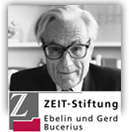Dr. Cedric Cohen Skalli:
- The history and future of Jewish Philosophy in the 20th and 21st centuries: the legacy of the German-Jewish model
- The question of Translation among 20th Century German-Speaking Thinkers
- Jewish art? History and Politics of a Concept
- The Antipolitik of Gustav Landauer
Dr. Natasha Gordionsky:
Fluid Borders and "Contaminated Landscapes": Judith Hermann's critical discourse on Eastern Europe.
Dr. Yotam Hotam:
The Critical Theologies of Modern German-Jewish Thought.
Dr. Sharon Livne:
- German Banking in Mandatory Palestine and Israel: The Contribution of German Jews to the Development of Local Banking, 1933-1948
-
Fruitfull Commerce: The Citrus Trade in Israeli-German Relation
Dr. Balázs Berkovits
Reemergence of the “Jewish problem” in contemporary works of philosophical, social and political criticism, understood in the framework of the crisis of social critique.
Dr. Orr Scharff
- "From Sinai to ‘This Day’: Hermann Cohen's and Franz Rosenzweig’s Recasting of the Giving of the Torah.” (Shortlisted for the Joel and Jeane Novak Essay Contest in Jewish Thought). Jewish Quarterly Review.
- Meeting the Eternal Thou at the Corner Shop: Reflections on the Role of the Intellectual Historian in light of Martin Buber: A Life of Faith and Dissent. Chidushim: Studies in the History of German and Central European Jewry
- Franz Delitzsch’s Hebrew Translation of the New Testament and the Revival of the Hebrew Language.
Silvana Kandel Lamdan
The historically, philosophically and theologically the intellectual interchange between Judaism and radical political Latin American Liberation Theology in the years 1960s-1980s. This research is a critical study of the explicit and implicit dialogue that the first generation of liberation theologians had with the Jewish tradition and with modern Jewish thinkers, especially those from German-speaking milieus like Hermann Cohen, Martin Buber, Franz Rosenzweig, Ernst Bloch, and Walter Benjamin.
Niv Perelsztejn
The interrelations between philosopher Emmanuel Levinas and Israeli intellectual arena, and Levinas' early reception in Israeli academia. The research follows the course of Levinas' biography and writings in France and in Germany, in French and in German, in their historical context and vis-à-vis writings of prominent Israeli scholars and public figures.





